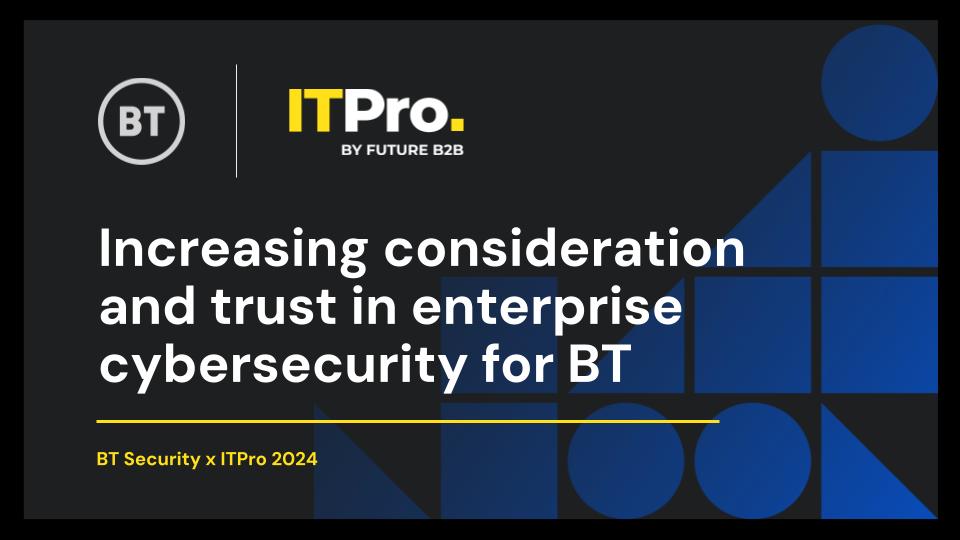trust
-
Blog

OpenAI’s MCP move tempts IT to trust genAI more than it should
Generative AI (genAI) poses a classic IT dilemma. When it works well, it is amazingly versatile and useful, fueling dreams that it can do almost anything. The problem is that when it does not do well, it might deliver wrong answers, override its instructions, and pretty much reinforce the plotlines of every sci-fi horror movie ever made. That is why…
Read More » -
Blog

Research shows the financial benefits of implementing zero trust
Properly implemented zero trust security could head off nearly a third of cyber attacks globally, saving up to $465 billion in financial losses every year. An analysis of hundreds of thousands of cyber incidents by cloud security firm Zscaler found that the overall figure was higher in Europe, where 41% of events were assessed as being potentially preventable through zero…
Read More » -
Blog

Do you trust AI? Here’s why half of users don’t – Computerworld
The smaller, faster o4-mini model did worse, hallucinating 41% of the time on PersonQA and 79% on SimpleQA. The newer GPT-4.5 model, released in February, performed better, with a 37.1% hallucination rate on SimpleQA. OpenAI publishes the latest results of these and other tests on its Safety evaluations hub. “The increase in hallucinations by reasoning models may very well be…
Read More » -
Blog

Microsoft ramps up zero trust capabilities amid agentic AI push
AI agents need to be treated like any other employee, at least when it comes to security, and that means they can’t be trusted by default and need their own secure identification. With zero trust in mind, Microsoft will be extending its security and identity tools — Entra, Purview, and Defender — to cover AI agents developed using its own…
Read More » -
Blog

Building trust through expert content
It’s an understatement to say that the UK’s national health system was exposed for its inadequacy during the COVID-19 pandemic. A decade-long policy of government budget cuts left it ill-equipped to supply enough beds for patients, staff and medical equipment for hospitals, and investment in research to offer guidance on long COVID – as well as showing flagrant inequality in…
Read More » -
Blog

“Public trust has become the new currency for AI innovation”: Why SAS is ringing the alarm bell on AI governance for enterprises
Leaders looking to implement AI should make AI governance and risk management their primary focus if they are to succeed in their adoption plans, according to a SAS executive. Reggie Townsend, VP, Data Ethics at SAS, told assembled media at SAS Innovate 2025 that tech leaders need to consider the risks AI brings now, whether they’re ready for it or…
Read More » -
Blog

Foreign AI model launches may have improved trust in US AI developers, says Mandiant CTO – as he warns Chinese cyber attacks are at an “unprecedented level”
Concerns about enterprise AI deployments have faded due to greater understanding of the technology and negative examples in the international community, according to Mandiant CTO Charles Carmakal. In conversation with ITPro at Google Cloud Next 2025, Carmakal said attitudes among firms who may have been hesitant to adopt the technology are changing rapidly. This process of coming around to AI,…
Read More » -
Blog

Zero trust gains momentum amid growing network visibility challenges
Network visibility challenges and rising cyber threats are prompting a step change in security strategies, according to new research, with firms ramping up zero trust capabilities. Findings from AlgoSec’s 2025 State of Network Security report show seven-in-ten security teams report visibility issues, which is delaying threat detection and response. Respondents to a survey by the firm warned that a lack…
Read More » -
Blog

Zero Trust Architecture Implementation Guide
The rapid evolution of cyber threats and the increasing prevalence of remote work have forced organizations to rethink their approach to network security. Traditional network security models operate on the assumption that everything inside an organization’s perimeter is trusted. This philosophy is no longer sufficient. The growing sophistication of cyberattacks, coupled with the rise in remote work and cloud computing,…
Read More » -
Blog

Microsegmentation in Zero Trust Explained
As organizations increasingly adopt Zero Trust Architecture (ZTA) to enhance their cybersecurity frameworks, the need for fine-grained, highly effective access controls becomes more apparent. The Zero Trust model operates under the premise that no one, whether inside or outside the network, should be implicitly trusted. Every request for access, regardless of its source, must be verified before being granted. Microsegmentation…
Read More »

